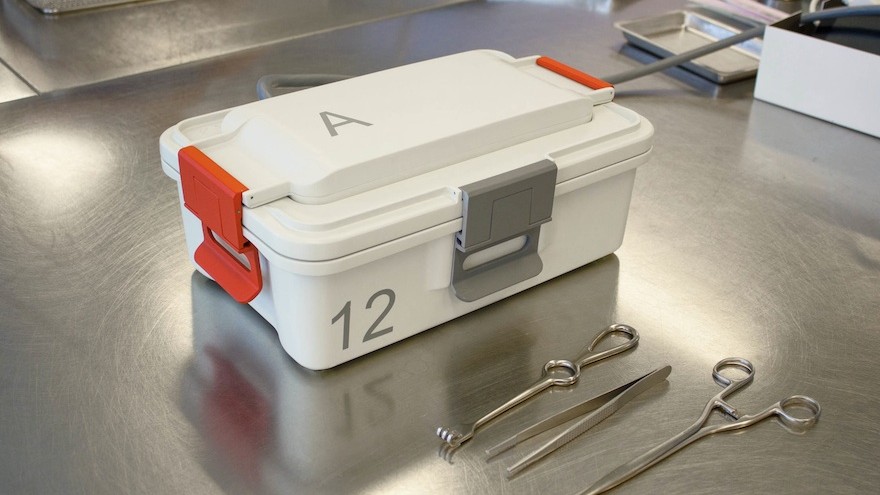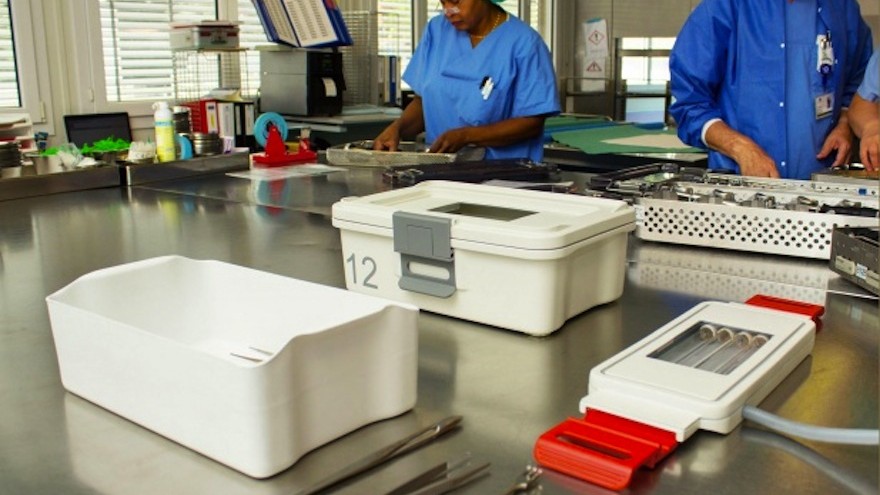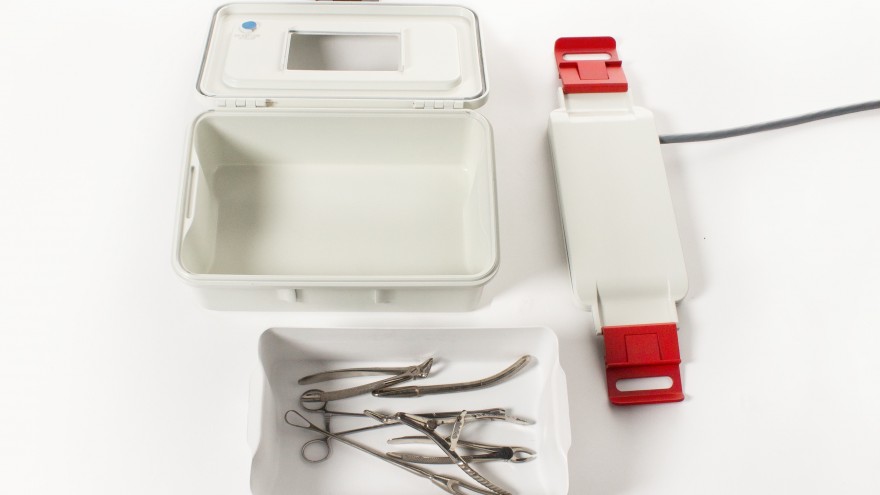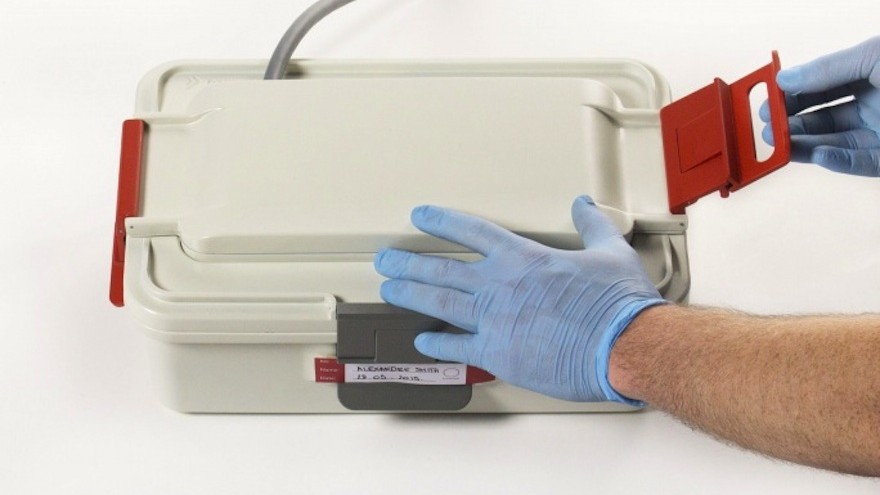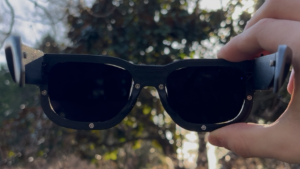École cantonale d'art de Lausanne (ECAL) graduate Jordane Vernet has won a James Dyson Award 2015 for Sterilux, a sterilisation kit for medical tools. The design requires 1000 times less water and 100 times less energy than conventional sterilisation methods, making it particularly suitable for use in less economically developed countries.
Sterilising surgical tools in hospitals is a routine procedure in private healthcare, but it remains difficult to do in public hospitals and emergency and disaster health care units in developing countries.
Many hospitals in developing countries and in disaster relief environments make do with simple disinfection of medical material but the risk of nosocomial infections remain high.
In just five minutes, Vernet’s system can sterilize several surgical instruments using UV rays and less than a millilitre of water. Contrary to other methods, the medical tools are neither wrapped nor placed in a sterilisation chamber, but are directly laid in a container called the SteriBox.
The SteriBox serves both as the sterilisation box and as a durable storage container, resistant to external constraints in order to guarantee long term sterility of the tools. It is also instinctive to use, easy to carry around and the technology has the advantage of requiring no consumable.
Vernet has designed Sterilux in collaboration with Ecole Polytechnique de Lausanne (EPFL) students Mark Spaltenstein, Michael Stettler and Lucas Meyer. Sterilux has won the (Swiss) James Dyson Award 2015

